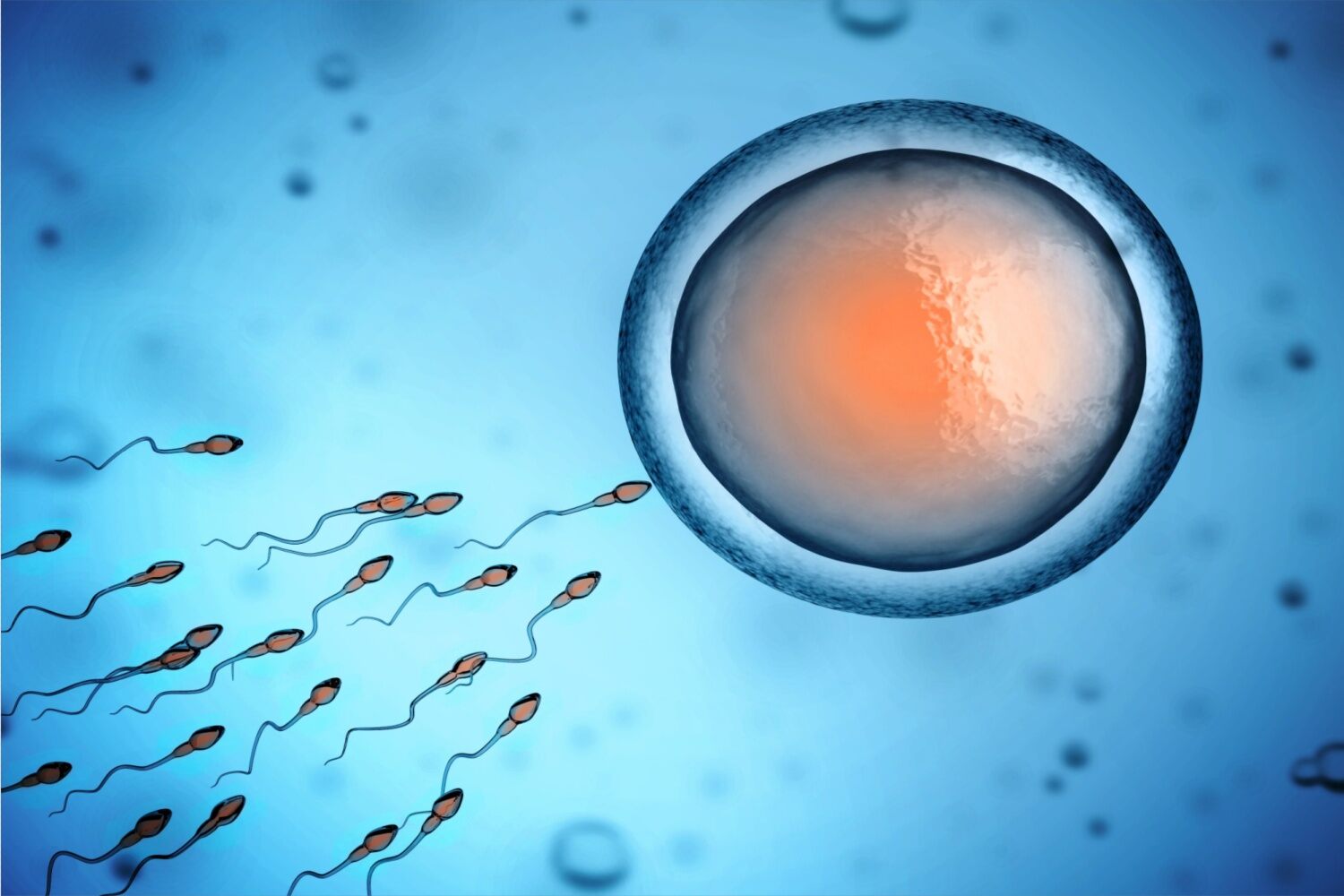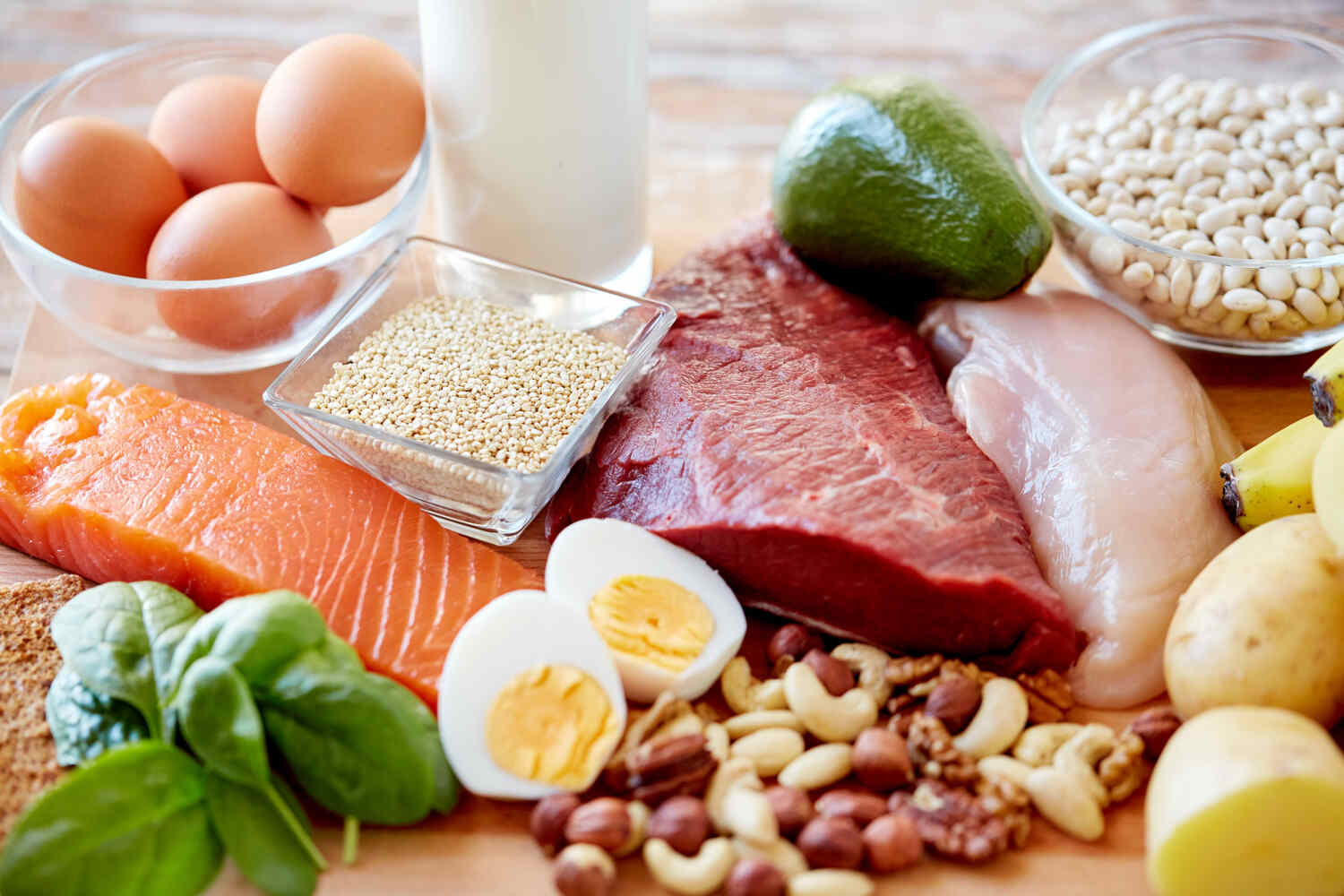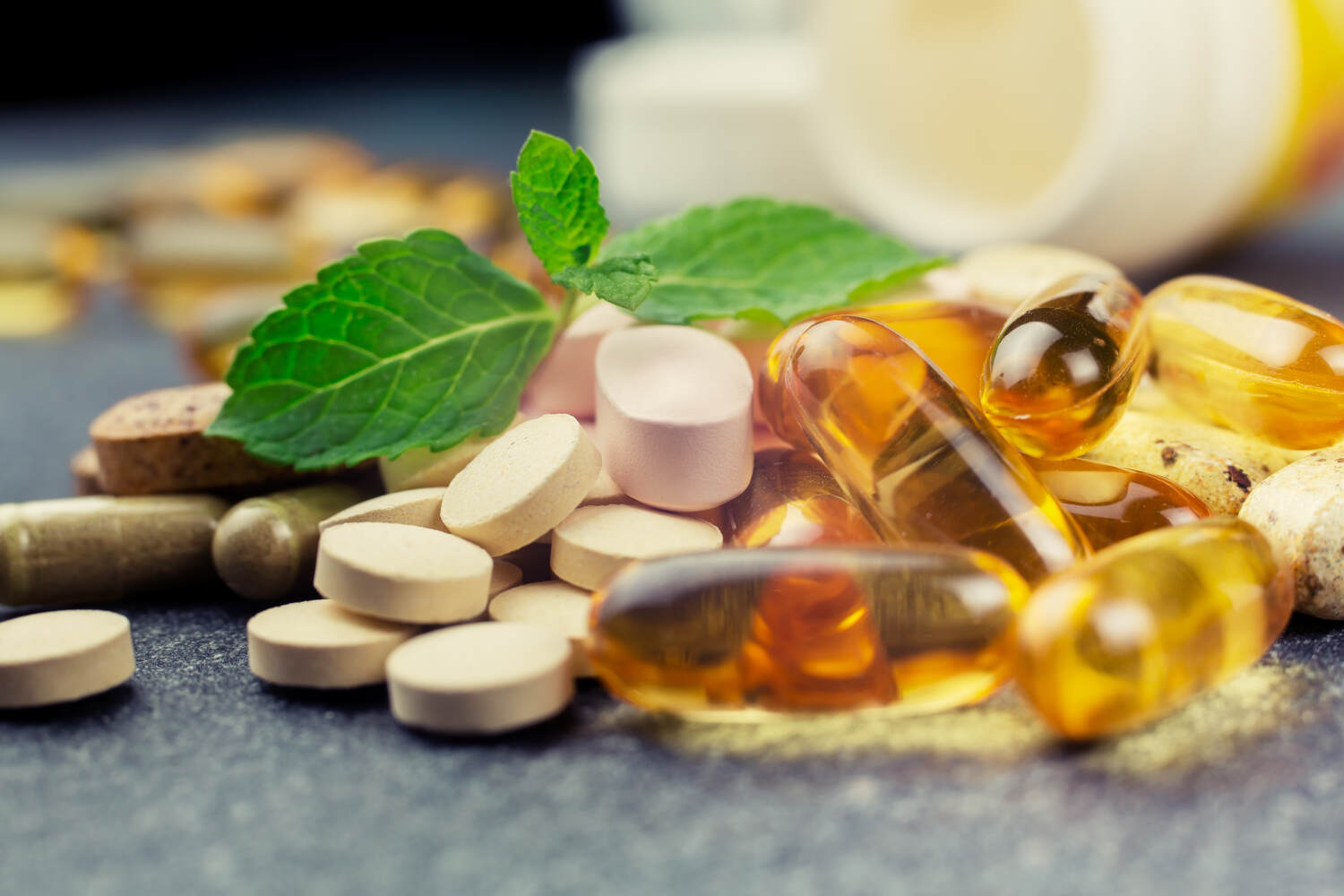
Male fertility has been on a steady decline in recent years. While late parenthood can contribute to the decline in sperm count and quality, factors such as obesity, poor diet and lifestyle habits, and environmental toxins are also responsible (1). As such, there is a growing interest in various ways of boosting male fertility.
One easily accessible and doable way to increase sperm count and quality is to bring about positive changes in diet and nutrition. So, how does making changes to your diet help improve male fertility?
In This Article
- Importance of Nutrition And Diet For Male Fertility
- What Foods Are Beneficial For Male Fertility?
- How Quickly Dietary Changes Affect Male Fertility?
- Should Supplements Be Considered For Male Fertility?
- FAQ’s
Importance of Nutrition And Diet For Male Fertility

Nutrition and diet are essential for male fertility. A balanced and nutrient-rich diet can significantly impact sperm health, production, and overall reproductive function. Here’s how diet and nutrition influence male fertility.
1. Sperm Quality And Production
Here is how diet can influence sperm quality and production.
a. Nutrient Intake
Essential nutrients like zinc, selenium, vitamin C, vitamin E, folate, and omega-3 fatty acids are vital for optimal sperm production and quality (2).
b. Antioxidants
Foods rich in antioxidants protect sperm from oxidative stress and damage, preserving their health and motility (3).
c. Healthy Fats
Omega-3 fatty acids found in fish, flaxseeds, and walnuts may improve sperm quality and motility (4).
d. Hormone Balance
Zinc is important for testosterone production, zinc-rich foods like oysters, red meat, and nuts support healthy hormone levels (5).
e. Weight Management
Being significantly overweight or underweight can affect hormone levels, potentially impacting sperm quality and fertility.
2. Avoiding Harmful Factors
Here are some factors to avoid when planning to improve male fertility.
a. Caffeine and Alcohol
Excessive consumption of caffeine or alcohol might negatively affect sperm quality.
b. Trans Fats And Processed Foods
Diets high in trans fats or processed foods may impact fertility by affecting hormone levels and sperm health.
3. Fertility Enhancing Nutrients
Here are some of the important nutrients that help improve fertility.
- Folate supports sperm health and DNA integrity and is found in leafy greens, beans, and fortified grains.
- Vitamin C and E are Powerful antioxidants found in fruits, nuts, and vegetables, protecting sperm from damage caused by free radicals.
A balanced diet that includes a variety of nutrients, antioxidants, and healthy fats is essential for supporting male fertility. It can positively impact sperm quality, production, and hormone balance. However, while diet is a crucial factor, it’s important to address fertility concerns comprehensively, seeking guidance from healthcare professionals for a holistic approach to fertility management.
What Foods Are Beneficial For Male Fertility?

Several foods are believed to support male fertility by providing essential nutrients, and antioxidants, and promoting overall health. Here are some beneficial foods for male fertility.
1. Leafy greens such as spinach, kale, and broccoli are rich in folate, and are essential for sperm health and DNA integrity.
2. Fruits such as berries, citrus fruits, and bananas are packed with vitamins, antioxidants, and natural sugars that support sperm health and motility.
3. Omega-3 fatty acid-rich food sources such as fatty fish (salmon and mackerel) are rich in omega-3s, which may enhance sperm quality and motility (6). Flaxseeds and walnuts are some plant-based sources of omega-3 fatty acids.
4. Foods such as oysters are exceptionally high in zinc and are vital for testosterone production and sperm quality. Red meat, poultry, and pumpkin seeds are good sources of zinc and are important for reproductive health.
5. Nuts and seeds are high in antioxidants like vitamin E and selenium, and protect sperm from oxidative damage. Vegetables such as tomatoes and bell peppers contain antioxidants like lycopene and vitamin C that are beneficial for sperm health.
6. Whole grains and legumes such as quinoa, lentils, and beans provide essential nutrients like folate, zinc, and fiber, supporting overall health and potentially aiding fertility.
7. Dairy products such as yogurt and cheese are good sources of calcium and protein and contribute to overall health and potentially impact fertility positively.
Incorporating a diverse range of nutrient-dense foods like leafy greens, fruits, omega-3 sources, zinc-rich foods, antioxidants, whole grains, and dairy products can contribute to a balanced diet that supports male fertility. However, it’s essential to maintain an overall healthy lifestyle, including regular exercise and avoiding harmful habits, for optimal reproductive health.
How Quickly Dietary Changes Affect Male Fertility?

The timeline for dietary changes to impact male fertility can vary among individuals. Generally, it may take several weeks to months for dietary modifications to potentially influence sperm production, quality, and overall reproductive health.
Factors Affecting The Timeline
Here are the factors affecting the timeline for the dietary changes to start showing an impact on fertility
a. Sperm Maturation Cycle
Sperm production involves a maturation process that can take around 74 days from initial production to maturity. Changes in diet may influence new sperm production, but the effects might not be immediately observable due to this cycle.
b. Nutrient Absorption And Metabolism
The body’s absorption and utilization of nutrients from dietary changes can differ among individuals, impacting how quickly these nutrients affect sperm production and quality.
c. Consistency And Duration
Consistently following a balanced and nutrient-rich diet over an extended period is essential for potentially seeing improvements in sperm health. Long-term adherence to dietary changes is crucial for lasting effects.
d. Overall Health Status
The impact of dietary changes on fertility can also depend on an individual’s overall health, existing nutrient deficiencies, lifestyle factors, and any underlying medical conditions affecting fertility.
e. Patience And Consistency
Since sperm production involves a cycle, immediate changes might not be apparent. Consistent adherence to a healthy diet (7), coupled with other lifestyle modifications like regular exercise, avoiding harmful habits, and maintaining a healthy weight, can contribute to improvements in male fertility over time.
f. Seeking Professional Guidance
If there are concerns about fertility or sperm health, consulting with a healthcare provider or a fertility specialist is advisable. They can provide personalized guidance, perform assessments, and offer recommendations tailored to individual health needs and fertility concerns. Monitoring changes in sperm parameters through semen analysis can also provide insight into the effects of dietary changes on male fertility.
Should Supplements Be Considered For Male Fertility?

Supplements may be considered for male fertility but should only be used after consulting with a healthcare professional. While a balanced diet is crucial for overall health and fertility, supplements can complement dietary efforts by providing essential nutrients. However, excessive intake of supplements can be harmful and may not necessarily improve fertility.
Considerations For Supplements
Here are some considerations to bear in mind before starting supplements to boost male fertility.
1. Consultation With Healthcare Providers
Before starting any supplements, including those marketed for male fertility, it is important to consult a healthcare professional. They can assess individual health needs, and potential deficiencies, and advise on suitable supplements.
2. Identifying Nutritional Deficiencies
Blood tests or assessments can help determine if specific nutrient deficiencies affect fertility. Supplements may then be recommended to address these deficiencies.
3. Quality And Dosage
Choose supplements from reputable sources to ensure quality and accuracy in dosage. Taking excessive amounts of certain vitamins or minerals can have adverse effects and may not improve fertility.
4. Specific Nutrients
Supplements might include zinc, selenium, folic acid, vitamin C, vitamin E, and omega-3 fatty acids, which have shown potential benefits for male fertility. However, their effectiveness varies among individuals.
5. Complementing a Healthy Lifestyle
Supplements should be seen as a complement to a balanced diet and healthy lifestyle rather than a replacement. Eating nutrient-dense foods remains crucial for overall health and fertility.
Supplements should not be considered a guaranteed solution for male fertility issues. They should be used cautiously, under the guidance of healthcare providers, especially in cases where nutrient deficiencies are identified.
Incorporating a balanced diet, maintaining a healthy lifestyle, and seeking professional advice are essential to promoting (boosting) male fertility. Consulting with a healthcare professional ensures that supplements are used safely and effectively to support overall reproductive health.
FAQ’s
1. How Can I Improve My Sperm Quality Fast?
Inculcating healthy diet practices, avoiding processed foods and foods rich in trans fats, and avoiding unhealthy habits such as smoking and drinking can all contribute to improving sperm quality. It is also important to have a healthy routine, including exercises, mindfulness and maintaining sleep hygiene. A doctor can advise if starting supplements can help in improving sperm quality fast.
2. Which Foods Increase Sperm Quality?
Vegetables and green leafy vegetables, fruits rich in antioxidants such as berries, nuts such as flax seeds and walnuts, legumes, whole grains, fatty fish and oysters and dairy products such as yogurt and cheese are some of the foods that can contribute to better sperm quality.
3. What Supplements Can Boost Male Fertility?
Nutrients such as zinc, selenium, folate, vitamin C, vitamin E, Omega 3 fatty acids, Co Q10, and antioxidants help boost male fertility. But supplements must be considered only after talking to a doctor. They may run tests if necessary and decide on the dosage and frequency of the supplements needed.
References
- Reasons for worldwide decline in male fertility – PubMed – [https://pubmed.ncbi.nlm.nih.gov/32168194/]
- The Effect of Nutrients and Dietary Supplements on Sperm Quality Parameters: A Systematic Review and Meta-Analysis of Randomized Clinical Trials – ScienceDirect – [https://www.sciencedirect.com/science/article/pii/S2161831322012728]
- Antioxidant intake is associated with semen quality in healthy men | Human Reproduction | Oxford Academic – [https://academic.oup.com/humrep/article/20/4/1006/701270?login=false]
- The roles of omega-3 and omega-6 fatty acids in idiopathic male infertility – PMC – [https://www.ncbi.nlm.nih.gov/pmc/articles/PMC3720081/]
- Zinc is an Essential Element for Male Fertility: A Review of Zn Roles in Men’s Health, Germination, Sperm Quality, and Fertilization – PMC – [https://www.ncbi.nlm.nih.gov/pmc/articles/PMC6010824/]
- Less processed meat, more fish and exercise may boost sperm count, quality | News | Harvard T.H. Chan School of Public Health – [https://www.hsph.harvard.edu/news/hsph-in-the-news/less-processed-meat-more-fish-and-exercise-may-boost-sperm-count-quality/]
- Diet and Nutritional Factors in Male (In)fertility—Underestimated Factors – PMC – [https://www.ncbi.nlm.nih.gov/pmc/articles/PMC7291266/]

